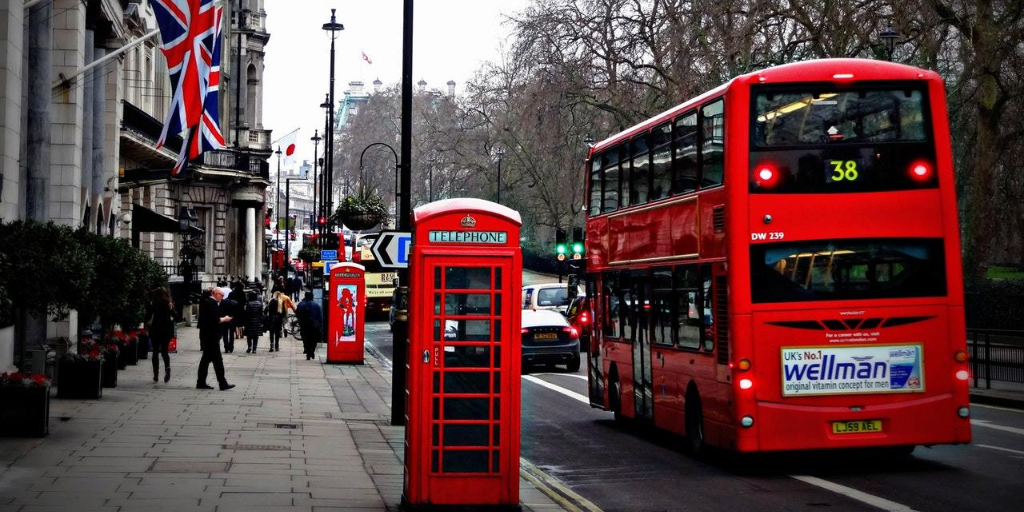The contrast between Boris Johnson and his vanquished rival Jeremy Corbyn
Hi there, thanks for joining us once again for Plain English this December 23, 2019. And a very merry Christmas to all of you who celebrate Christmas around the world. I’m Jeff; JR is the producer; and you are listening to the best podcast for learning English. Today is Episode number 218 and that means all our resources are available to you at PlainEnglish.com/218. Just as a reminder, the resources include a free word-for-word transcript, and Plain English Plus+ members have access to video lessons, translations, flash cards, and a fast version of this very episode.
On today’s episode, we talk a bit more about the British elections. You heard about the results last time; today, we’ll talk about what each party promised, and what the results mean for the major players. Later on, you’ll learn what the English expression “for good measure” means, and we have a quote of the week.
Real quick, before we dive into the main content: Are you part of our e-mail program? If not, then you’ll want to head to PlainEnglish.com/mail and sign up. Twice a week, JR sends out additional episode resources to thousands of your fellow listeners. The emails have a summary of the episode, links to English articles about the main topic, and an explanation of another English word or phrase. Make sure to get all those free resources by signing up at PlainEnglish.com/mail.
UK elections: how the parties fared
On Thursday, we talked about the results of the British election. The Conservative party, also known as the Tories, won 365 seats against 203 seats for Labour, 48 for the Scottish National Party, and 34 for all other smaller parties combined. That gives Prime Minister Boris Johnson’s party an 80-seat advantage over all others.
In today’s episode, we’ll talk about what the election results mean for the big parties and how they each fared against expectations.
Let’s start with the day’s big winners, the world’s oldest political party. Boris Johnson’s campaign was disciplined and focused. His message was that the Conservatives would “get Brexit done.” He was able to win the support of many Labour voters without losing too much of his own base of supporters that may not have wanted a hard Brexit. He added promises of infrastructure and social spending for good measure, but he relentlessly repeated his central promise to conclude his country’s exit negotiations with the European Union. Voters knew he meant it, too. Johnson struck a compromise with Brussels in the fall.
When members of his own party challenged his Brexit compromise, he kicked them out of the party. For better or for worse, when election day came, the British people knew Johnson meant business on Brexit. And after three years of deadlock, the word “done” may have been the one word that sealed the deal.
The Labour campaign could not have been more different. Its leader, Jeremy Corbyn, is as dull and awkward with voters as Johnson is telegenic. Incredibly, the party was unable to articulate a coherent position on Brexit. The official position was that Labour supported a new negotiation with the EU, followed by a second referendum. But Corbyn refused to even say how he would vote in that referendum, leaving everyone to wonder where the second-biggest political party stood on the most important question of the day.
Instead, Labour carpet-bombed British voters with policies and proposals to solve problems that voters didn’t know they had. The proposals included nationalizing utility companies, nationalizing the railways, cutting train fares, lowering the voting age to 16, making university tuition free, giving additional pension payments to women, enforcing equality among football clubs, providing free broadband internet, and much else. Ironically, many of those individual proposals were popular, but the sum total represented a radical economic shift that wasn’t fit for the political moment. Combine that with Corbyn’s disturbing affinity for Hamas and Venezuela’s Nicolas Maduro and his inability to shake accusations of anti-Semitism, and Labour lost a winnable election in a landslide.
Britain has many smaller political parties that don’t compete for majorities, but they can be the kingmakers in coalition governments, when no other party wins an outright majority. The Liberal Democrats were once the largest of these parties. As recently as 2010, they held 57 seats and were coalition partners with the Conservatives. In this election, they could have positioned themselves as a moderate party against the hard Brexit offered by Boris Johnson but without the sweeping economic changes on offer by the increasingly left-wing Labour party. It didn’t happen. Although they won a respectable 12 percent of the national vote, they were decimated in individual races and now hold just 11 seats. Their leader, Jo Swinson, lost her seat.
The Scottish National Party is a regional party and now holds 48 of the 59 seats from Scotland, further isolating Scotland politically from the rest of the UK. The SNP and Scottish voters were strongly opposed to Brexit and will likely push for a new referendum on seceding from the UK—a push Johnson will oppose.
There is one other party that bears mention and that is the Brexit party. This was a party formed only in 2019 and its reason for being was to advocate for the strongest EU exit possible. The party took seats in the European Parliamentary elections, but did not hold any seats in Westminster. In a shrewd political move, Boris Johnson convinced the Brexit party not to compete head-to-head with the Conservatives in any district, guaranteeing that the Conservatives would lock up the whole Brexit vote. Had a Brexit party splintered the votes, the Tories’ majority could well be much slimmer.
Great stories make learning English fun

